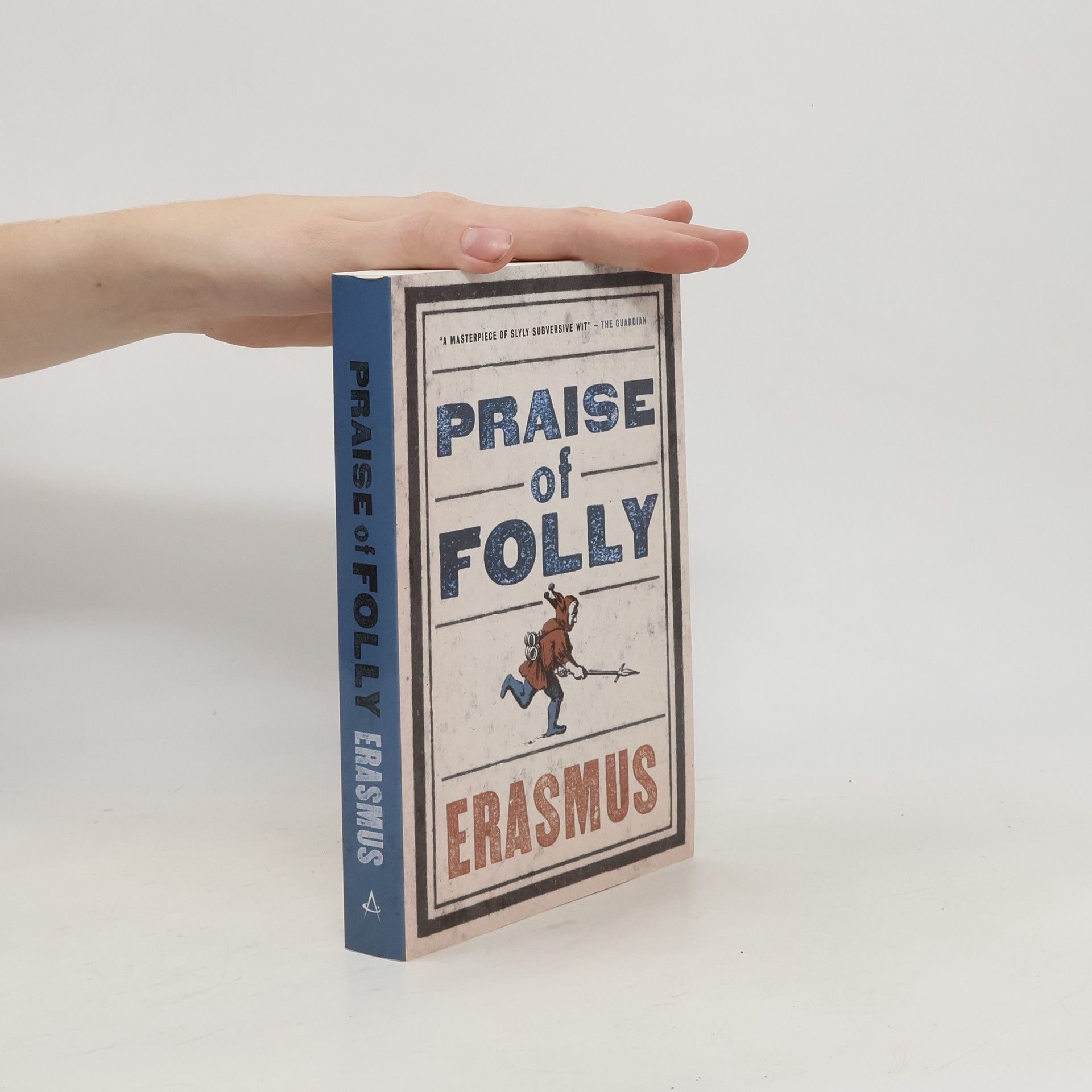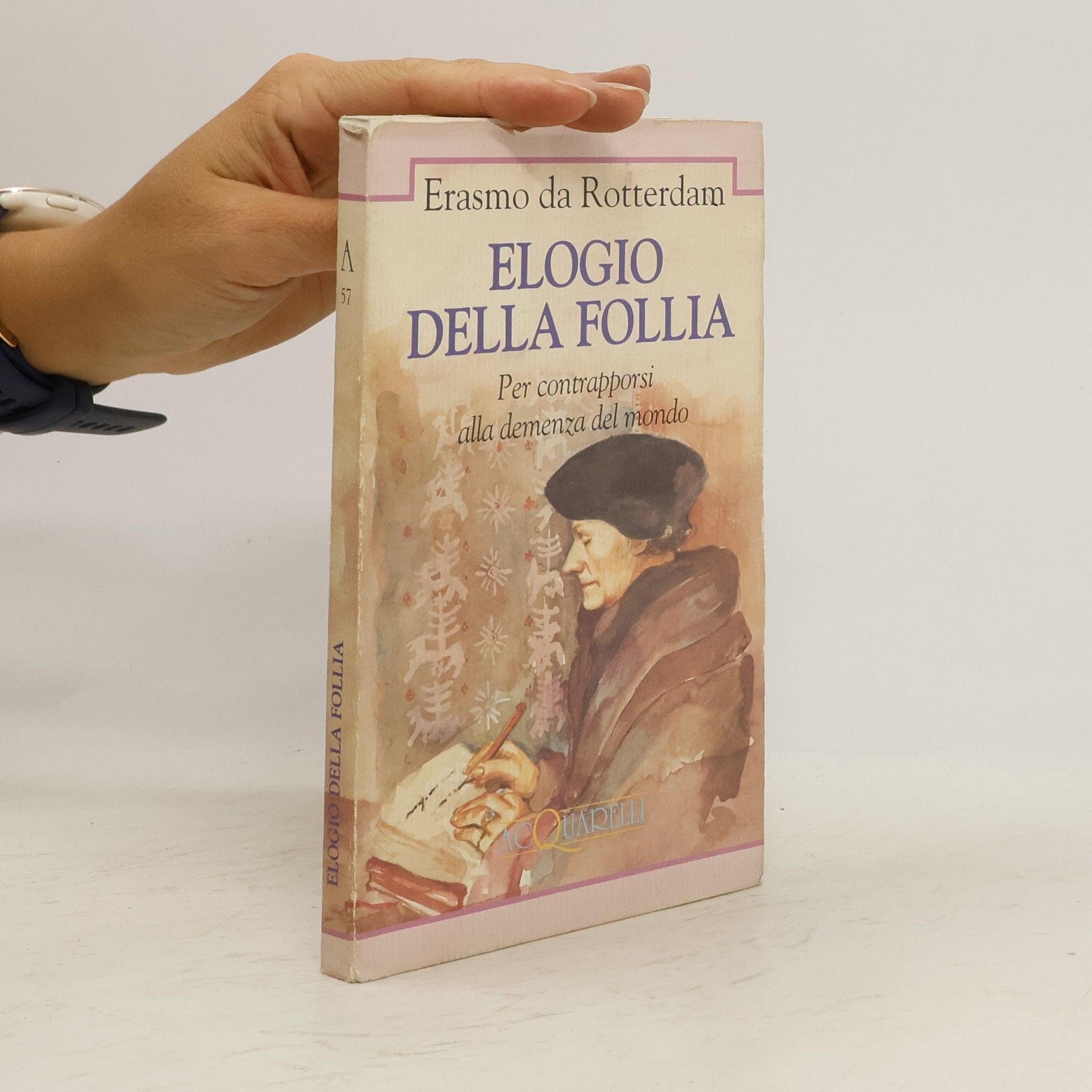Sulla pace
- 71pagine
- 3 ore di lettura
Erasmo da Rotterdam, acclamato come il "Principe degli Umanisti", fu uno studioso del Rinascimento olandese, rinomato per la sua prosa latina pura. Impiegando metodi testuali umanisti, produsse nuove e influenti edizioni del Nuovo Testamento in latino e greco che plasmarono la Riforma. Pur critico verso gli abusi della Chiesa Cattolica e sostenitore della riforma, mantenne le distanze dai riformatori radicali, promuovendo un percorso moderato che enfatizzava il libero arbitrio e un profondo rispetto per la fede tradizionale. La sua posizione intellettuale cercava una via di mezzo, spesso deludendo coloro che si trovavano agli estremi.







a cura di Bruno Segre
Written by Erasmus of Rotterdam in 1501, this influential work serves as a guide for Christian knights, blending moral philosophy with practical advice for living a virtuous life. Emphasizing the importance of inner faith over outward displays of piety, it encourages readers to embody Christian principles in their daily conduct. The text was first published in English by William Tyndale in 1533, marking its significance in the Reformation and its impact on Christian thought and ethics.
The goddess Folly gives a speech, praising herself and explaining how much humanity benefits from her services, from politicians to philosophers, aristocrats, schoolteachers, poets, lawyers, theologians, monarchs and the clergy. At the same time, her discourse provides a satire of Erasmus's world, poking fun at false pedantry and the aberrations of Christianity. Woven throughout her monologue, a thread of irony calls into question the goddess's own words, in which ambiguities, allusions and interpretations collide in a way that makes Praise of Folly enduringly fascinating.
One of the most important books of the 'advice-to-princes' published in the Renaissance.
The final volume of the Correspondence subseries presents a collection of letters from Erasmus during his last years, offering insights into his thoughts and experiences as he navigated the complexities of his later life. This compilation highlights his reflections on personal, philosophical, and theological matters, showcasing the evolution of his ideas and relationships. It serves as a valuable resource for understanding the legacy of one of the Renaissance's most influential figures.
The narrative explores the final thirteen months of Erasmus' life, highlighting his deteriorating health alongside the development of his renowned work, On Preparing for Death. This period captures both personal struggle and intellectual achievement, offering insights into his thoughts on mortality and legacy.
With Portrait, Life Of Erasmus, And His Epistle Addressed To Sir Thomas More
Exploring the themes of human folly and the critique of societal norms, this work presents a satirical examination of various aspects of life, including religion, education, and politics. It features a portrait of Erasmus, alongside a biographical account of his life, highlighting his influence during the Renaissance. Additionally, the book includes an epistle addressed to Sir Thomas More, showcasing the friendship and intellectual exchange between the two scholars. This combination of humor and philosophical insight makes it a significant historical text.
The classic work of the Renaissance humanist satirizes the organized Christian Church of the sixteenth century.